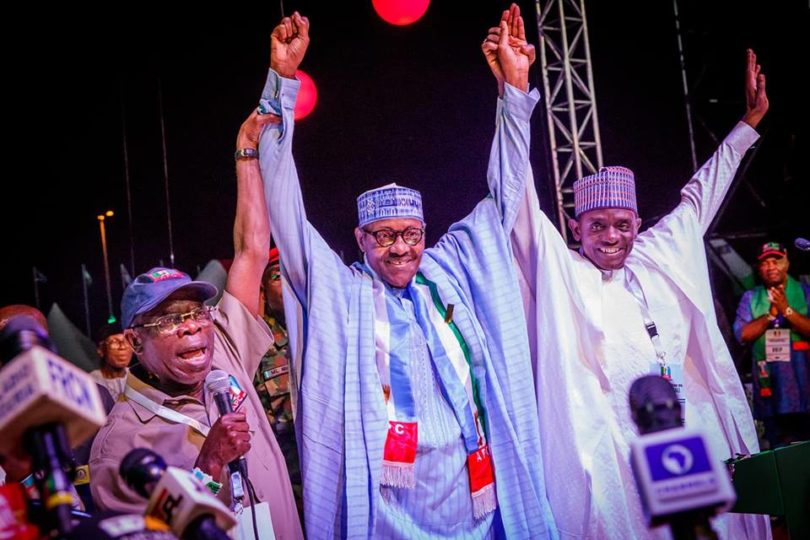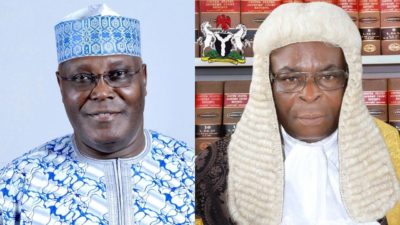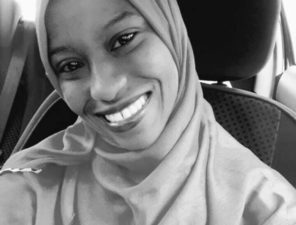By Muhammad Ajah
I would have written this piece last week in response to an articulated column by my dear compatriot and senior colleague in socio-political analyses, Bala Muhammad who fascinated Nigerian politicians and democracy lovers on how not to play or support the (mis)conception of democracy in the country, especially during election periods. I had to wait for another week, so as not be controlled by sentiments and trepidation. Nigerian democracy is in danger and all Nigerians, especially the political elites, should rise up to safeguard it.
Political analysts are like public “talkatives” because however solemn their observations, suggestions and recommendations are, they are treated like those of the entertainers who make people laugh and gesticulate. If only half of the solutions they offer for the practical peace, unity and development of Nigeria are adopted, all these troubles bedevilling the country would have been over or brought to the barest minimum. Writing under the title: “…And you call this democracy” in his Saturday column of Daily Trust on October 20, 2018, Bala queried the unbelievable commitments, criminality and inhumanity by both office seekers and supporters in the name of democracy.
I felt the pains Bala underwent while he put up his piece. It is painful what used to happen during general elections in Nigeria. Only one who has the nation at heart and has followed the quagmire surrounding Nigeria’s democracy would write the story as it is. Nigeria returned to democratic rule in 1999 but till date, it is not yet uhuru for democratic norms and culture in the country. I felt his soul troubled by the recent chagrins called primaries for various political offices especially by the major political parties in preparation for the general elections in 2019. The outcome and heavy crises that ensued from the primaries are anything prospective of democratic maturity. And he wondered what would be expected from parties who cannot guarantee internal democracy. Most politicians in Nigeria have remained “unlettered” with the true demands of democratic processes and governance.
I was able to pick five serious issues raised by Bala which have stagnated our democracy to an extent. How long shall we continue to refer to Nigeria’s democracy as “nascent”? A child born in 1999 is nearly 20 years old by now and can stand on his/her own. It is not how democracy should be, not even in a developing country. It is becoming an accepted norm in Nigeria’s democracy that political office holders do not feel free to hand over to a successor outside a family nuclear. As if it is not enough for politicians to surround themselves with nuclear family members while in office, they simply install stooges who will cover-up the financial recklessness and inhumanity they committed throughout their tenure(s).
By doing this, integrity, qualification, competence and experience are of no essence. The greatest requirement is “to be near enough to His Excellency” and how “ever Yes-Siring and reliable Commissioner or Something”, the stooge had been and has signed the pact to remain. The stooge can be “something-in-law to His Excellency, who did the boss’s wishes without question”. To be adopted as a mere political ally outside the nuclear and extended family membership, the stooge must have sworn to an oath in the presence of a devil to execute all the biddings of the master after succeeding him.
Is this democracy? Is this the democracy Nigerians have been fighting for in the last twenty years? Definitely, it is not. When governance is totally run by family members, that is called dynasty. It is not democratic governance. In Nigeria today, situations are found where a father, mother, son, daughter and in-laws are in different political offices in a state and at the federal government. They hold positions as members of national and state assemblies, members of the federal and state cabinets, special advisers, senior special and special assistants and “caucus members” at state and federal levels without clear political portfolios. Some of the politicians have built such political enclaves that have become very difficult to penetrate.
Worse still, “some leaders really wish to play god by manipulating the mandate of the people they have been entrusted to govern.” Yes, some Nigerian leaders see themselves demigods. They claim to be political oracles that must be consulted and their wishes imposed on the country or their states of origin. It is either them or nobody. Everything about them is “do or die”. They do not see anything good about others. Bala was so angry with this attitude of such leaders that he squeaked: “…Our attitude is faulty and we lack the good leadership to take us out of the woods.”
The second point of concern was the position of the “supposed representatives of the people, the so-called Civil Society Organisations (CSOs) and the Mass Media”. These are entities who are supposed to help the people, especially the political leaders, get things done right. But very unfortunately, they are already busy lining up to receive “monitoring and observer funds” from Western donors whose only requirement is for Nigeria to have the elections done for elections sakes. Nothing more! Instead, they become problems in the electioneering processes and democratic development.
The third point was on the possible killings that will occur over the next few months shortly before, during and probably after the elections. Recalling past experiences, there had hardly been any general elections since 1999 which did not claim lives and properties. Bala is very sure that the expected deaths, God forbid, are neither going to be “accidental nor collateral”. They will be intentional and wilful murders that should be punishable by death. He quivered with certainty that no one will be punished for such murders, since that has been the case in the past.
He described this period as “a political murder season”. Killings under any guise in Nigeria have to be put to a stop. The politicians have been accused of unabated fatalities across the country but no single one has been brought to book. Under Boko Haram, herdsmen, cultists, armed banditry, armed robbery, amongst other pseudo nomenclatures, innocent citizens of Nigeria have been sent to grave. In addition, road accidents, building collapses, stray bullets from armed force men and more new plans and technological creations to score political differences will ensue in the “political murder season”. Nigerians must pray and act against these.




![Lagos House of Assembly rejects 17 commissioner-nominees [See full list] Lagos House of Assembly rejects 17 commissioner-nominees [See full list]](https://thedefenderngr.com/wp-content/uploads/2023/08/images-3-1-400x215.jpeg)